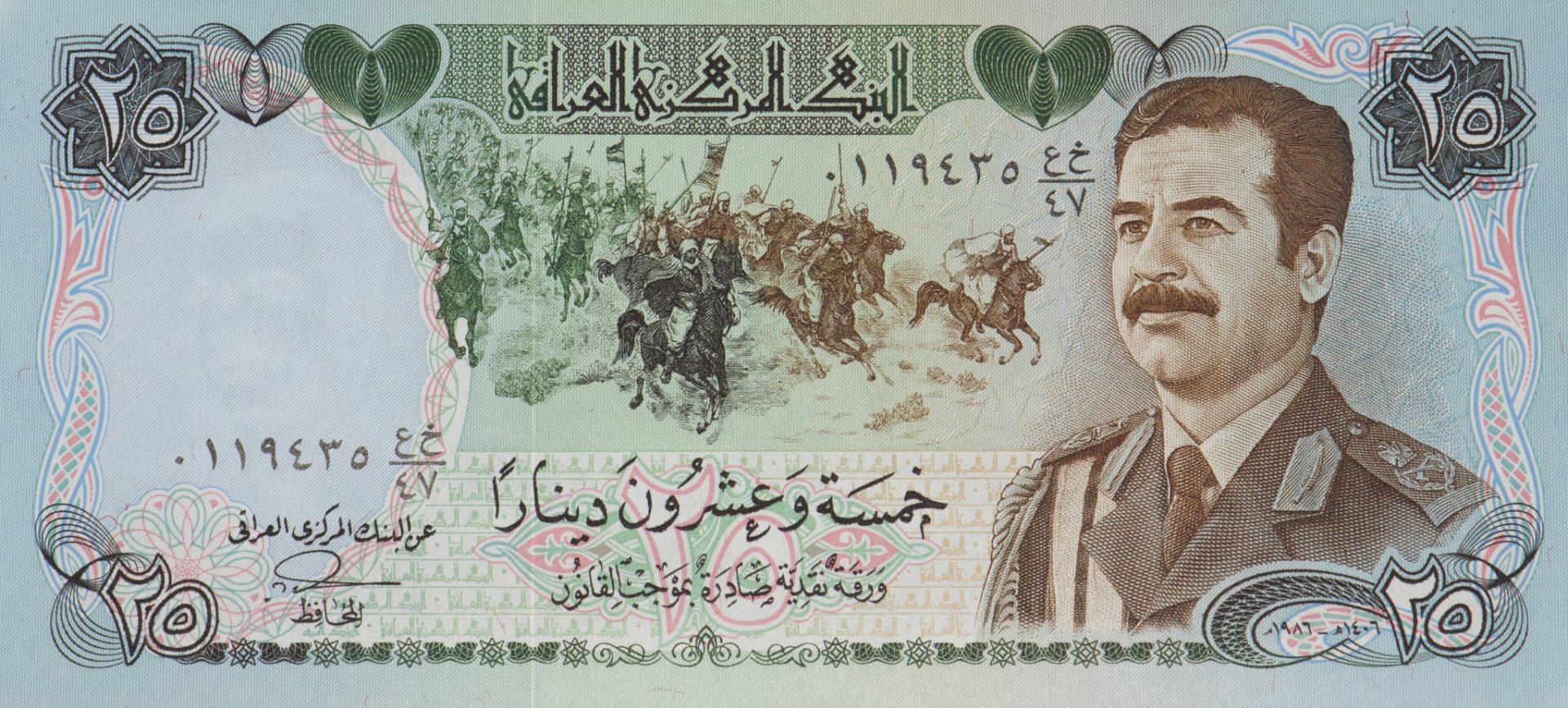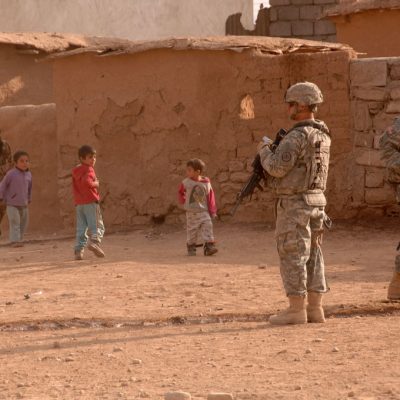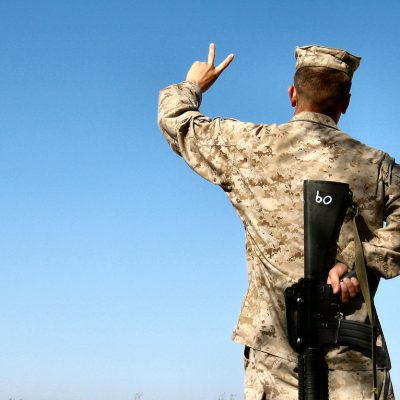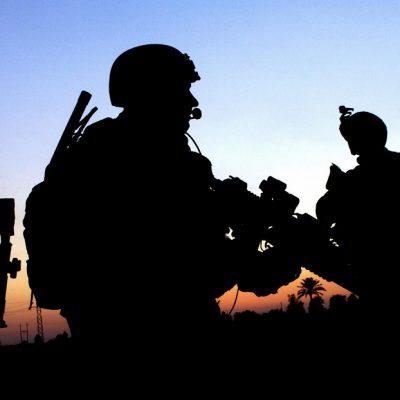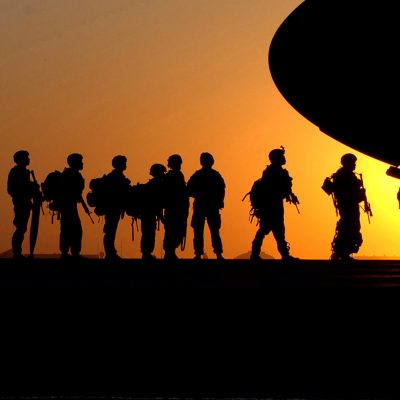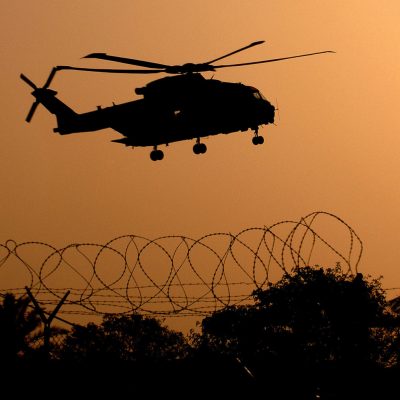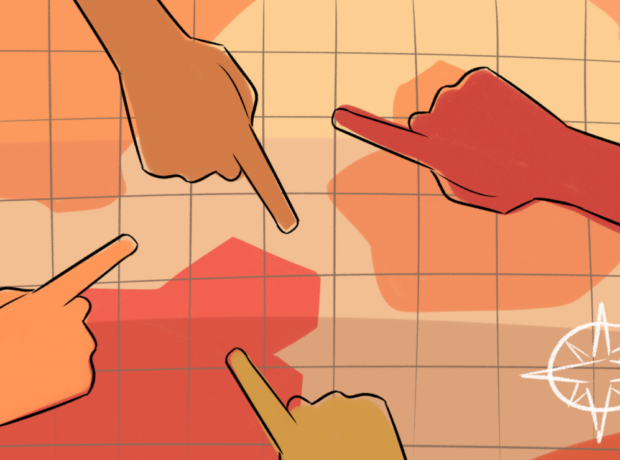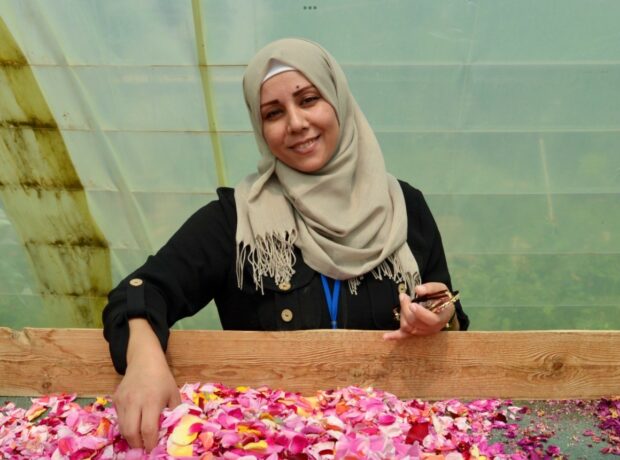The fall of Saddam Hussein and the death of Baha Mousa. (Day 4 of our 7 day series) This article was first published in Open Democracy. You can read Day 3: The Chilcot Report and the Politics of the Iraq War here.
On Monday we reported on Prime Minister Theresa May’s promise to crack down on “activist left wing human rights lawyers” to prevent them “harassing” British soldiers. On Tuesday we told the story of Ahmed Jabbar Kareem Ali, left to drown after being forced into a river by soldiers, one case among hundreds brought to light by investigations into British conduct in Iraq. Yesterday we looked at the absence of serious inquiry into these allegations by the Chilcot report and parliament. Today we look at some of the origins of this affair.
After the invasion of Iraq in March 2003 and the rapid collapse of military opposition offered by Saddam Hussein’s forces, the US-led coalition quickly decided that there would be a need to intern thousands of Iraqis who might pose a threat to British and American forces. The Coalition rounded up people who might have useful information, members of the old regime, enemy troops.
Organised programmes of interrogation
As invasion turned into occupation, the purpose of internment or detention expanded. Coalition forces wanted to uncover weapons of mass destruction and seek out those Iraqi officials who might be held accountable for the Baathist regime’s crimes against its own population. And to obtain intelligence about resistance to the Coalition’s occupation, the so-called ‘insurgency’.
Coalition forces — which included American, British, Australian and Polish troops — were prepared to incarcerate large numbers of individuals and subject many to organised programmes of interrogation. US forces took over Saddam Hussein’s Baghdad prison called Abu Ghraib, and used it to detain 7000 Iraqis.
Other detention camps were specially built by the Americans and British across the country. Camp Bucca, a huge compound of barbed wire, watch towers and army tents, served as the Coalition’s internment facility for southern Iraq where UK forces operated.
Despite intense security, news of life in these camps leaked out. Amnesty International reported on conditions and allegations of torture by US personnel at Abu Ghraib prison as early as July 2003. In the spring of 2004, the Wall Street Journal revealed the contents of a confidential report by the International Committee of the Red Cross criticising the methods of detention and interrogation as “serious violations of international humanitarian law”. Both the American and British forces were named as responsible.
Despite intense security, news of life in these camps leaked out.
Hooding, beatings, sleep deprivation . . .
One case in particular was mentioned. Baha Mousa and several other Iraqi civilians had been taken into custody by the 1st Battalion of the Queen’s Lancashire Regiment on 14 September 2003. Within 48 hours Baha Mousa was dead. Along with the others, he’d been hooded with sandbags, forced into stress positions, deprived of sleep, food and water, and beaten repeatedly. During one final assault by British troops guarding him, he’d died of positional asphyxia, held on the floor with his arms handcuffed behind him, his head pulled back and unable to breathe.
In March 2004, Phil Shiner, principal of the solicitors’ firm Public Interest Lawyers, announced that he’d been instructed to act for Baha Mousa’s father and that he was bringing an application before the High Court for a judicial review into the investigation of Baha Mousa’s death. He argued that the UK had failed in its human rights duties to carry out a sufficiently independent and timely inquiry into this death in custody. Five other cases (involving alleged killings of Iraqis either on the streets of Basra or in their homes) were brought at the same time in what became known as the Al-Skeini litigation, named after the first of the defendants, Hazim Al-Skeini, who was shot dead by a British army patrol in August 2003.
Over the following two or three years, stories of other abuse or killing by British troops emerged. As early as July 2004 the Ministry of Defence had acknowledged that the Royal Military Police in Iraq were conducting investigations into the deaths of 37 Iraqi civilians. 15 year old Ahmed Ali had drowned in the Shatt al-Arab canal after being forced into the water by members of the Irish Guards. Nadhem Abdullah died after being stopped in a car by a Paratroop unit – he was pulled from his vehicle, struck on the head and left lying on the ground. Sa’eed Shabram was also found drowned in the canal.
Then, the scandal of Camp Breadbasket broke.
Photographic evidence
Camp Breadbasket was the name given to a large complex set up by British forces on the outskirts of Basra that stored supplies for local distribution. Looters took advantage of the under-guarded perimeter and frequently broke in to steal whatever they could. The commanding officer decided to teach them a lesson. On 14 May 2003 he ordered his men to capture any looters they found and put them to work cleaning up the camp. About 20 were caught early that morning. But the soldiers decided to enact their own form of punishment. Some of the Iraqis were stripped naked and forced into simulated sex acts with each other. One was strapped to the forks of a forklift truck and raised high above the ground. Another was covered with a net, pushed to the ground and jumped on by one of the soldiers.
It might have been all forgotten and disbelieved if it hadn’t been for one of the troops taking pictures of all the abuse. When he tried to have the photographs developed on return to the UK, the photographic shop called the police.
The Camp Breadbasket photographs provoked outrage. No one could deny the cruelty on view. Soldiers looked as though they were enjoying humiliating and abusing their victims.
But it was the death of Baha Mousa and abuse of the several other Iraqis held with him in the British base called Battle Group Main in Basra, which was more disturbing. Here a man had died. Pictures of Mousa’s battered and blood stained body were released and a post mortem report revealed that he’d suffered 93 separate injuries prior to his death. Later, a video would emerge, recorded on one of the soldiers’ mobile phone. It showed some of the treatment the Iraqi civilians had endured during the very early part of their detention.
The Ministry of Defence said immediately that all allegations of crimes committed by UK troops would be investigated and prosecuted. But the process was left in the hands of the army.
The Camp Breadbasket photographs provoked outrage.
It took two years for the Camp Breadbasket case to come to Court Martial. Three junior soldiers were convicted of relatively minor offenses, though one was found guilty of “disgraceful conduct of a cruel kind”. In their defence, the soldiers accused the army of turning them into scapegoats: they said they had been given illegal orders to “work the Iraqis hard’” but officers had escaped prosecution.
The Baha Mousa case also proceeded to court martial. But not before the Court of Appeal held in the Al-Skeini litigation, brought by Public Interest Lawyers, that an independent and effective inquiry had not yet been undertaken into Baha Mousa’s death.
Closed ranks
When seven soldiers were finally brought to trial in late 2006 for the sustained and collective ill-treatment of Mousa and the other detainees, six were acquitted of all charges. Only one accused was convicted, Corporal Donald Payne, who’d already pleaded guilty to inhumane treatment. He was sentenced to a year in prison and dismissed from the army. No one was found responsible for the killing. The soldiers involved “closed ranks”, the Judge Advocate in the case said. They claimed they could remember little about what happened.
And still no independent inquiry had been undertaken into the incident.
The killing of Baha Mousa and the acknowledged ill-treatment was widely condemned by senior army officers and ministers alike. General Sir Michael Jackson would later call it a “stain on the character” of the British army. But even though more allegations of unlawful killing, torture and ill treatment were being brought before the civil courts, the government continued to resist any investigation other than through the Royal Military Police. There would be no independent public inquiry into the patterns of emerging claims, the Ministry of Defence said. Instead, the army would conduct its own review.
Tomorrow: British troops are alleged to have used interrogation techniques in Iraq Occupation 2003 that were outlawed by Ted Heath’s government in the 1970s.
Catch up on the previous instalments:
Day 3: The Chilcot Report and the Politics of the Iraq War
Day 2: A drowned boy, an apology, an attack on ‘activist, left-wing human rights lawyers’
Day 1: A conspiracy cooked up by ‘activist left-wing human rights’ lawyers?
Banner photo by James Malone.
